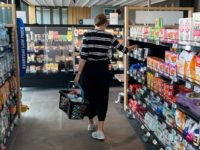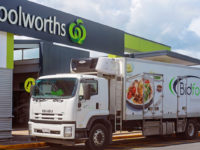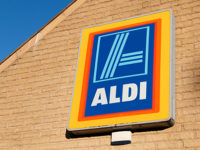 Tensions are rising in the UK’s food and grocery industry as another Brexit deal is shot down just 17 days before the planned departure date from the EU.
Tensions are rising in the UK’s food and grocery industry as another Brexit deal is shot down just 17 days before the planned departure date from the EU.
Prime minister Theresa May’s Brexit deal was defeated in parliament for a second time on Tuesday by 149 votes.
British MPs are due to vote again on Wednesday to decide whether Britain should exit the EU without a deal; a situation that many predict would bring chaos to markets and supply chains and could cause shortages of food and medicines.
Analysts for GlobalData have reiterated the chaos that could ensue in the event of a no-deal and have found that consumers are already stockpiling food and medicines.
“The supply chain chaos caused by a no-deal Brexit would force food inflation in 2019 to rise from 2.4 per cent – forecast under a soft Brexit – to upwards of 5.1 per cent as prices increase across core categories such as fresh fruit and vegetables,” retail analyst Thomas Brereton said.
“There has simply not been enough information provided by the government on how food prices, availability and regulations will be affected in the event of a no-deal Brexit. The just-in-time supply chain that UK supermarkets operate on means that there is not the specialist infrastructure in place to deal with stockpiling – particularly of fresh goods.”
The data and analytics company has revealed that over a quarter of UK consumers plan to stockpile or have begun stockpiling for Brexit.
GlobalData’s monthly retail tracker analyses 13 UK food and grocery categories that consumers are currently stockpiling or plan to, following reports of potential food retail inflation prices.
Household products come out on top at 39.7 per cent with cereal (35.4 per cent), and tea and coffee (35.3 per cent) taking second and third place respectively.

“Shoppers are either stockpiling or planning to stockpile a wider range of food categories than the predictable cupboard staples such as household products and cereals, with tinned fruit and vegetables proving a popular category, as well as tinned meat products,” Brereton said.
“It is the fear of price increases rather than shortages that is the biggest driver – with 60 per cent of stockpilers doing so because of a belief of higher prices post-Brexit, and 52 per cent doing so in anticipation of product shortages.”
The pharmacy sector is also expected to be hit hard in a no-deal scenario, with 41 per cent of consumers gathering over the counter medicines in preparation for a lack of availability.
According to GlobalData’s latest report, Brexit and the Healthcare Industry – Implications for Pharma, Q4 2018, 66 per cent of participants across the US, UK, and EU said that it would take more than three years for the UK to stabilize its healthcare industry.
“This stabilization is of high importance, with the UK pharmaceutical industry contributing £70bn to the economy,” said Gavin Davidson, pharma analyst at GlobalData.
“Without a free trade deal being agreed upon prior to departure, the UK would no longer have access to the EU single market, meaning pharmaceutical companies, such as AstraZeneca (AZ) and GlaxoSmithKline (GSK), and patients on the NHS that are dependent on imported medications are stockpiling medications.”
















